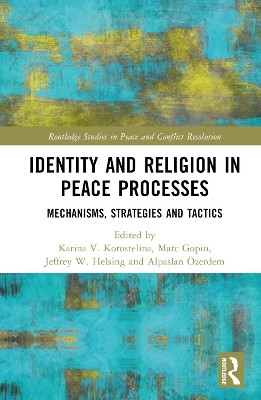Identity and Religion in Peace Processes(English, Hardcover, unknown)
Quick Overview
Product Price Comparison
This book examines the complex role identity and religion play in global peace processes. Based on multiple case studies, this book unveils the complex role identity and religion play in peace processes across the globe. It demonstrates that the success and sustainability of a peace process depends on the systemic application of the BRIDGE model that is introduced here. This model describes five major strategies (Bonding, Reassuring, Involving, Determining Guides, and Equalizing) and numerous tactics for how peace processes and accords can deal with the central issues as well as important common challenges that run through identity-based ethnonational or religious conflicts. This represents the first comprehensive account of how the transition from enemies to neighbors is achieved and how intergroup relations and engagement are transformed in peace processes, impacting power, access to resources, legitimacy, and representation in national identity. The model also discusses what forms of peacebuilding authentically represent the interests, needs, and values of religious constituencies, and what can be learned from how religious constituencies escalate and de-escalate conflict. The book demonstrates why religion must also be included in peace processes and permanent solutions, owing to religion's capacity to enhance commitment to bonding and peaceful values, such as justice, compassion, nonviolence, stability, care for children, and care for the environment, for the sick, the wounded, the traumatized, and the bereaved. This book will be of much interest to students of peace studies, intra-state conflict, religion studies, and International Relations.


